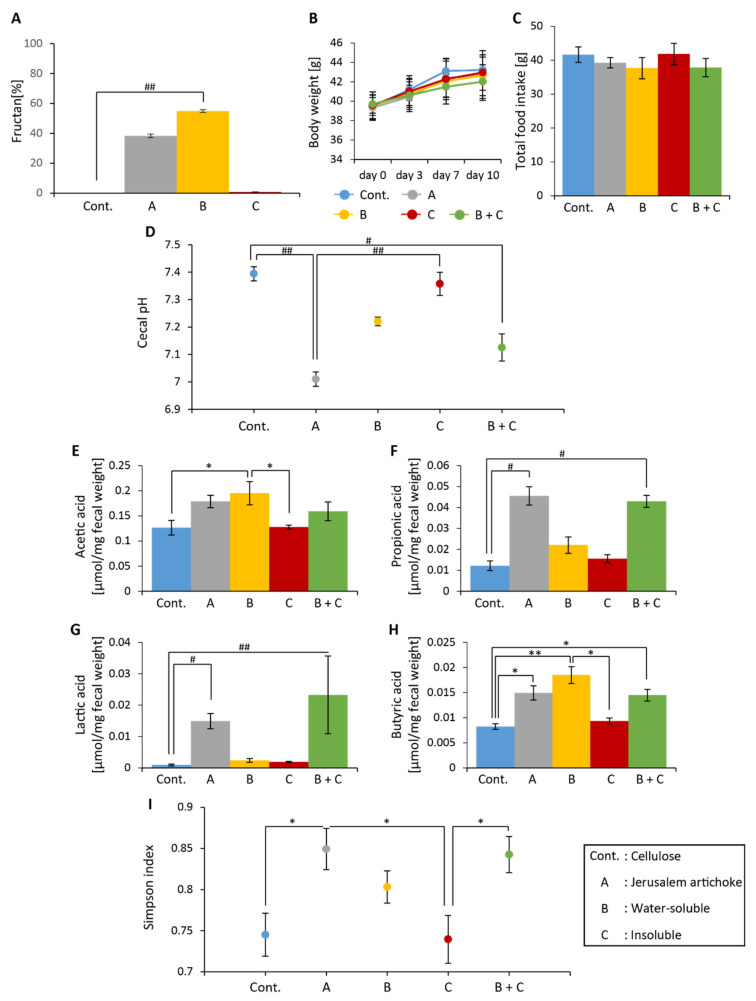Figure 5.
The Jerusalem artichoke, and the combination of water-soluble and insoluble extracts, decreased cecal pH, and increased levels of short-chain fatty acids. (A) The amount of fructan (cellulose (n = 4), Jerusalem artichoke (n = 4), water-soluble (n = 4), insoluble (n = 4)). (B) Change in body weight after 10 days. (C) Total food intake over 10 days. (D) Cecal pH of mice housed for 10 days for each group. (E–H) Short-chain fatty acids (SCFAs) of mice for 10 days, including (E) acetic acid, (F) propionic acid, (G) lactic acid, and (H) butyric acid. (I) Bacterial alpha diversity. Comparison of the Simpson diversity index for the 16S rDNA gene libraries at 97% similarity, per the sequencing analysis. All values are represented as mean ± SEM (cellulose (n = 5), Jerusalem artichoke (n = 5), soluble (n = 5), insoluble (n = 5), soluble + insoluble (n = 5)). ** p < 0.01, * p < 0.05, evaluated using One-way ANOVA with Tukey post-hoc test. ## p < 0.01, # p < 0.05, evaluated using the Kruskal–Wallis with Dunn post-hoc test. Cellulose, Jerusalem artichoke, water-soluble, or insoluble are Cont., A, B, or C, respectively.

